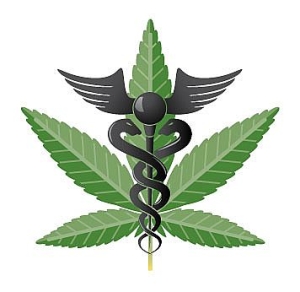Understanding the various opposing arguments to medical cannabis is important for future physicians and medical professionals. In the next few years, cannabis will likely become more widely accepted as an established medical treatment, and it is important to understand issues surrounding its use. Here, I outline one point of contention in the medical cannabis debate to increase understanding of medical cannabis and its relationship to patients.
Long-term and sustained reduction of motivation, or increases in feelings of apathy potentially leading to decreased productivity, is known as “amotivational syndrome.” It is a phenomenon which has been cited by medical cannabis detractors in their arguments for maintaining medical cannabis prohibition. Dr. Brian Johnson, MD, the director of the addiction psychiatry fellowship at SUNY Upstate Medical University, recently said in an article, “Hyping [cannabis] as a medical treatment is ridiculous … You will end up with a bunch of stupid stoners in New York with lung disease who think maybe they should go out on disability because they don’t want to get off the couch.”
Comments such as these are speculative, lack a foundation in valid scientific research, and can be dismissive of the thousands of patients who could and are experiencing benefit from the use of medical cannabis in treatment of pain, nausea, anorexia, insomnia, PTSD and other debilitating symptoms. Unfortunately, these comments can also give people incorrect information and ideas about medical cannabis. This can result in delays in medical cannabis legalization and an unnecessary continuation of the suffering of thousands of patients who are eligible for the medical use of cannabis.
While certain strains of medical cannabis may cause short-term fatigue in some patients during use, the concept of an “amotivational syndrome” supposedly caused by cannabis use is not supported by research. Additionally, studies which have claimed to evidence a cause-effect relationship of cannabis use and a lack of motivation have confounding variables, which compromise the validity of results. For example, some studies do not employ randomization in the creation of comparison groups due to ethical constraints. Consequently, inherent differences between the groups before assessment blur the role of cannabis, and therefore lead to bias in the results. Potential confounding factors may include a predisposition to mental health issues such as depression and anxiety (issues which may decrease motivation by their own nature) resulting in self-medication with cannabis, the use of other substances such as alcohol, or having low motivation before cannabis use began. These are considerations to clarify before accepting the conclusions drawn from these studies that claim that cannabis use causes amotivational syndrome.
Additionally, many of these studies do not compare motivation between users and non-users. One study which conducted such comparison found, “The amotivational syndrome question was answered yes [i.e. participants agreed to experiencing symptoms associated with amotivational syndrome] by 7 (6.2%) of the nonusers, 4 (6.3%) of the occasional users, and 3 (5.6%) of those with daily use experience. There was no significant relationship between history of marijuana use and the amotivational syndrome criterion… there does not appear to be any real evidence to suggest that marijuana use necessarily contributes to [amotivational syndrome].” Due to all of this evidence, scientific studies do not support the phenomenon of “amotivational syndrome” caused by cannabis use, and it is not applicable to medical cannabis legalization or use.
In order to gain accurate information, especially on topics concerning patient care and the advent of new treatments, original medical literature should always be examined and analyzed using a proper understanding of statistics and research. The relationship, if any, between amotivational syndrome and its relationship to cannabis use needs to be more thoroughly studied before definitive conclusions regarding the possible link can be made. The current evidence does not support the existence of a definitive link between amotivational syndrome and cannabis use. Therefore, the claim that cannabis use causes amotivational syndrome should not be regarded as reasonable evidence for the continued prohibition of medical cannabis for patients with debilitating symptoms.
For more information on the topic of medical cannabis, please see Part 1, Part 2, and Part 3 of the series “Medical Cannabis: A Matter of Patients, Not Politics.”


